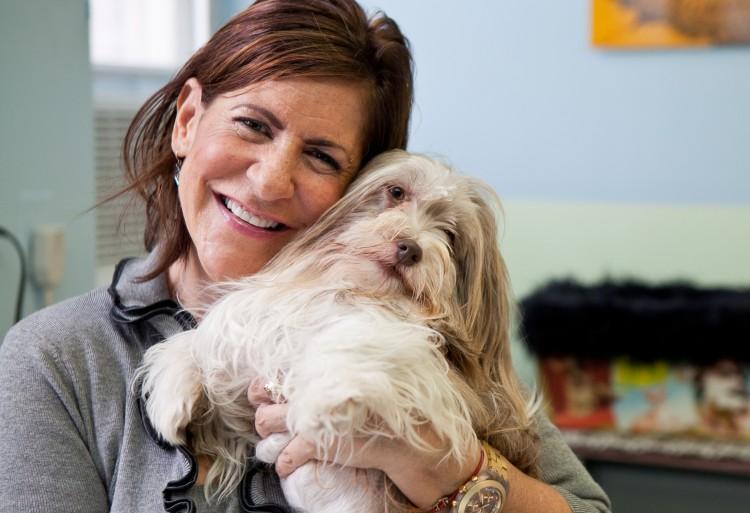NEW YORK—The elevator door opened to a metal gate, which was bombarded by a horde of yelping dogs. Anne-Marie Karash carefully waded through to open it as she chatted to the animals, “Why, hello my silly children.”
It was a typical morning for Karash, the associate director of the Humane Society of New York (HSNY), a nonprofit, no-kill animal shelter.
“Every morning, we let them all out to run around and play. It’s all fun, but when they see me, they start competing for attention, and it all turns into bedlam,” Karash said.
The hours at HSNY are long, and the pay may seem limited when compared to her old career as a stand-up comedian, but Karash finds simple happiness amid the disarray.
“My philosophy on life is that you should find the laughs where you can, for the tears will surely find you,” she said. And HSNY provides its fair share of funny stories.






